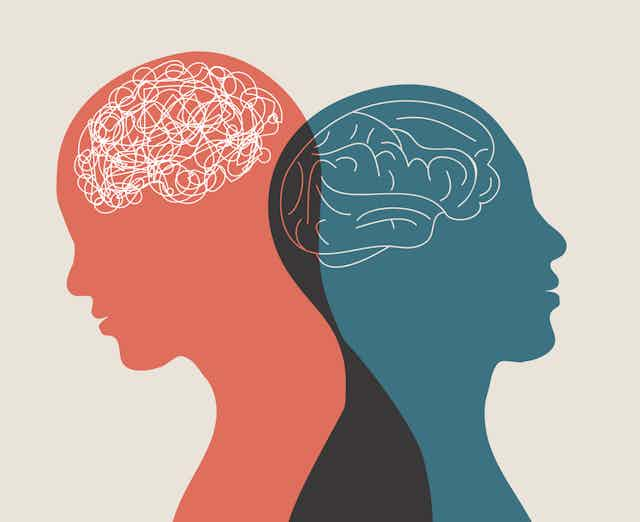The Duty of Psych Treatment in Managing Anxiousness and Clinical Depression
Psychotherapy has actually emerged as a cornerstone in the administration of anxiousness and depression, providing tailored treatments that vary from Cognitive-Behavioral Treatment (CBT) to mindfulness-based strategies. These strategies not just help individuals in recognizing and restructuring negative idea patterns however also foster present-moment understanding, lowering the propensity to ponder.
Understanding Stress And Anxiety and Clinical Depression
Recognizing anxiety and depression requires a detailed appearance at these prevalent psychological health and wellness conditions, which frequently coexist and substantially effect a person's every day life. Anxiousness is characterized by relentless, extreme concern and fear regarding day-to-day situations. Symptoms include restlessness, rapid heart rate, and trouble concentrating. Conversely, depression materializes as a prevalent sensation of sadness, emptiness, or despair, typically come with by a loss of interest in previously appreciated activities, changes in cravings, and rest disturbances.
The coexistence of anxiety and depression can complicate and intensify signs diagnosis and treatment. Individuals experiencing both conditions might experience much more extreme symptoms, better disability in work and social performance, and a much longer period of health problem. This comorbidity requires a nuanced understanding and approach to therapy.
Cognitive patterns like adverse reasoning and maladaptive behaviors can perpetuate these conditions. Comprehensive evaluation by mental wellness specialists is essential to determine the visibility and degree of these conditions, paving the means for customized healing techniques.
Types of Psychiatric Therapy
Psychotherapy, also recognized as talk therapy, incorporates a range of therapy modalities created to ease signs of stress and anxiety and depression by attending to the underlying psychological and emotional issues. Various sorts of psychiatric therapy are customized to satisfy the one-of-a-kind requirements of individuals, offering a series of approaches to mental health treatment.
One commonly utilized type is psychodynamic treatment, which concentrates on understanding and dealing with unconscious conflicts coming from very early life experiences. By checking out these ingrained issues, individuals obtain understanding right into their existing behavior and emotional state.
Interpersonal Therapy (IPT) is an additional reliable technique that concentrates on enhancing interpersonal partnerships and function to lower depressive signs and symptoms. It generally deals with issues such as sorrow, function changes, and social disputes.
Humanistic therapies, such as Client-Centered Therapy, stress individual development and self-actualization. Best Psychologist in Delhi. These strategies produce an encouraging atmosphere where individuals can discover their feelings and develop a more powerful feeling of self
Last But Not Least, Dialectical Behavior Modification (DBT) incorporates cognitive-behavioral techniques with mindfulness techniques. Originally established for borderline personality disorder, DBT has been adjusted to treat stress and anxiety and clinical depression by training skills in distress tolerance, emotional law, and social efficiency.
These diverse psychotherapeutic methods offer several paths to psychological health and wellness and health, accommodating private preferences and restorative needs.
Cognitive-Behavioral Therapy (CBT)
Among the various psychotherapeutic techniques, Cognitive-Behavioral Treatment (CBT) stands out for its organized, ambitious strategy in treating stress and anxiety and depression. Developed by Aaron T. Beck in the 1960s, CBT is asserted on the principle that maladaptive reasoning patterns contribute dramatically to emotional distress and behavior concerns. By identifying and reorganizing these unfavorable thought patterns, CBT aims to relieve symptoms and foster healthier official source cognitive procedures.
The therapy incorporates a range of strategies, consisting of cognitive restructuring, direct exposure therapy, and behavioral activation. Cognitive restructuring concentrates on challenging and changing altered cognitions, while direct exposure treatment progressively adjusts patients to anxiety-provoking stimulations, reducing avoidance habits.
Empirical evidence highlights the effectiveness of CBT, with countless researches showing its efficiency in decreasing symptoms of stress and anxiety and anxiety. This therapeutic method has actually been adapted for numerous populaces and setups, verifying adaptable and flexible. Its structured nature, empirical support, and focus on read this post here skill acquisition make CBT a keystone in the psychotherapeutic therapy of anxiety and clinical depression.
Mindfulness-Based Methods
Mindfulness-Based Methods have amassed significant focus recently as efficient treatments for anxiety and anxiety. Rooted in old reflection practices, these techniques aim to grow an increased awareness of the here and now minute, which can help individuals disengage from the ruminative idea patterns often connected with anxiety and depressive conditions.

In A Similar Way, Mindfulness-Based Cognitive Treatment (MBCT) integrates concepts from Cognitive-Behavioral Therapy (CBT) with mindfulness methods. MBCT is specifically reliable in protecting against relapse in people with frequent anxiety. By recognizing very early indication of depressive episodes, people trained in MBCT can use mindfulness practices to minimize the beginning of full-blown episodes.
Advantages of Psychotherapy
Countless researches have actually shown the extensive benefits of psychiatric therapy for individuals grappling with anxiousness and anxiety. Psychotherapy equips individuals with coping strategies to handle distressing feelings, consequently minimizing signs of anxiety and clinical depression.
In addition, psychiatric therapy offers a structured environment for self-exploration and insight. By discussing their experiences and sensations with an experienced therapist, individuals can uncover underlying issues adding to their mental health and wellness battles. This self-awareness is a crucial action toward long-term recovery and strength.
Another substantial benefit is the enhancement of interpersonal abilities. Anxiousness and anxiety often stress connections, leading to seclusion. Via healing treatments, people find out effective interaction and conflict-resolution abilities, which can improve their interactions and foster encouraging connections.
Additionally, psychiatric therapy uses a customized technique to therapy. Ultimately, the advantages of psychotherapy extend past signs and symptom relief, contributing to general well-being and quality of life.

Final Thought
Psychiatric therapy significantly adds to the monitoring of anxiety and depression by offering efficient coping techniques and a secure atmosphere for self-exploration. Methods such as Cognitive-Behavioral Treatment (CBT) this article and mindfulness-based strategies contribute in determining and restructuring negative thought patterns, while promoting present-moment awareness. These tailored treatments not only relieve symptoms however also boost emotional guideline and social skills, therefore improving general wellness and high quality of life for people encountering these mental health and wellness obstacles.
Psychotherapy has arised as a keystone in the administration of anxiousness and depression, offering tailored interventions that range from Cognitive-Behavioral Therapy (CBT) to mindfulness-based methods.Recognizing stress and anxiety and clinical depression needs a comprehensive look at these prevalent mental wellness conditions, which often coexist and significantly influence an individual's everyday life.Amongst the various psychotherapeutic methods, Cognitive-Behavioral Therapy (CBT) stands out for its structured, goal-oriented strategy in treating stress and anxiety and anxiety.Various research studies have shown the profound advantages of psychotherapy for individuals grappling with stress and anxiety and clinical depression. Psychotherapy equips people with coping techniques to take care of stressful feelings, thereby decreasing signs and symptoms of stress and anxiety and anxiety.